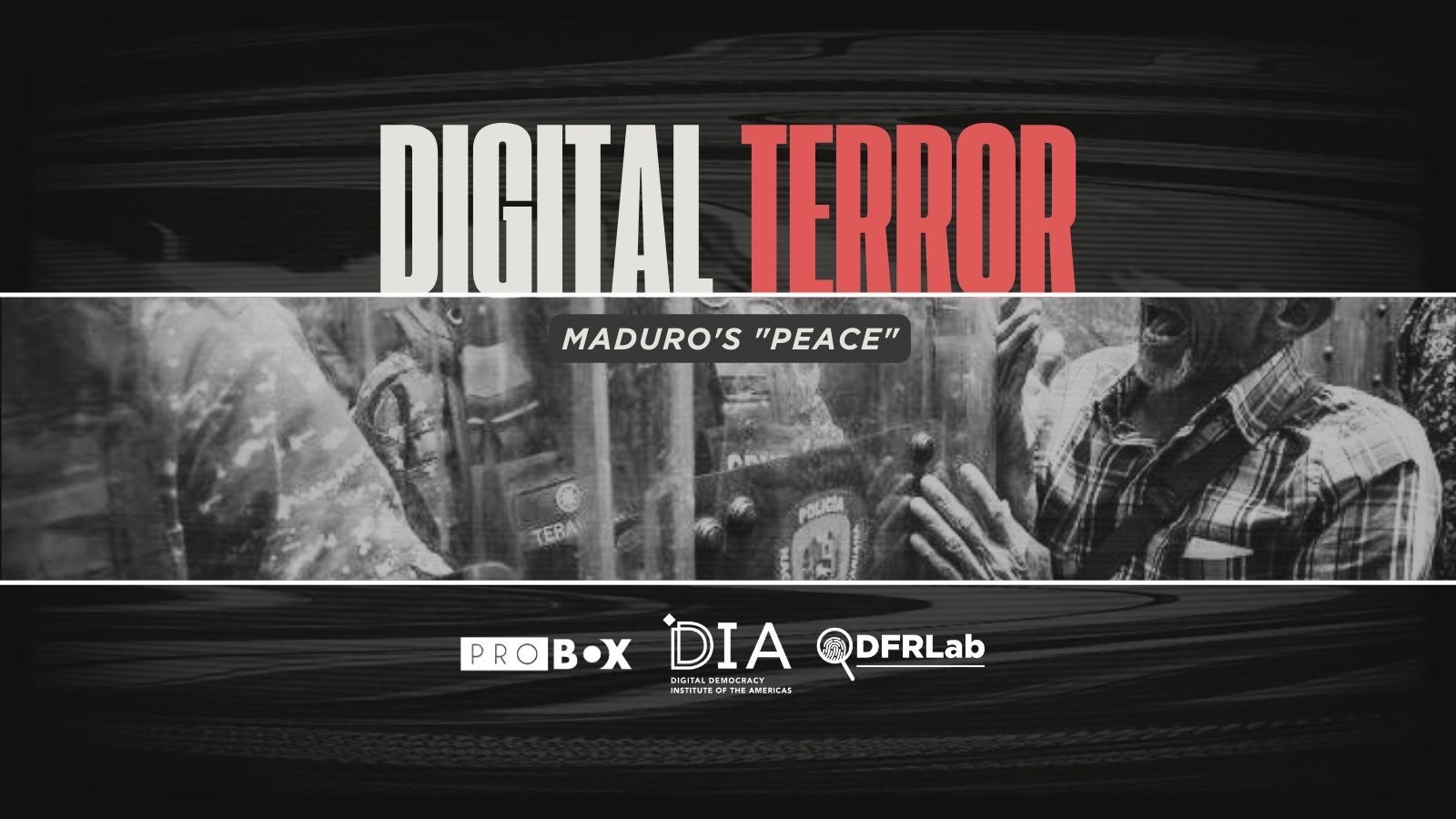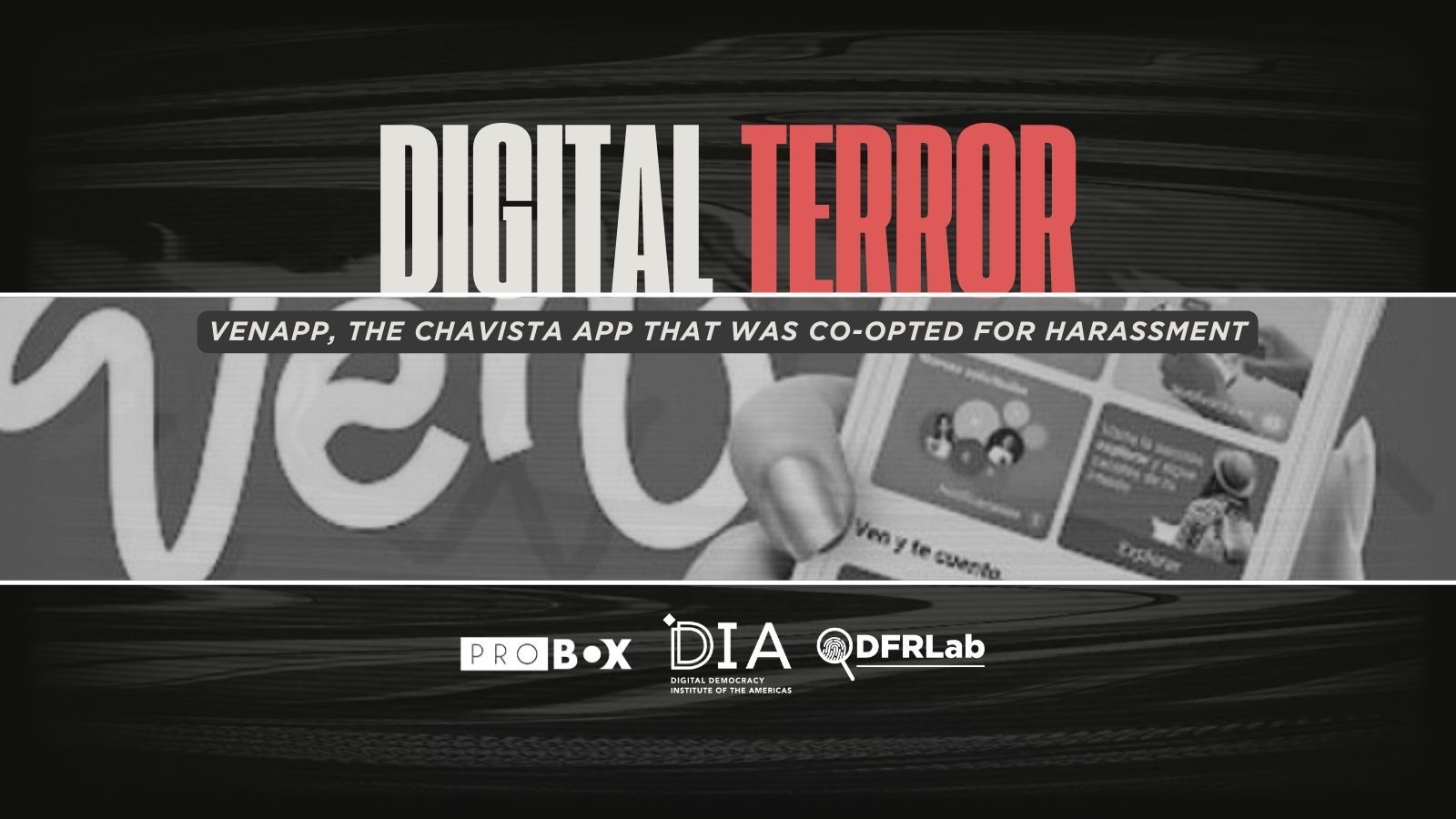In the wake of Venezuela's July 28 presidential elections, Nicolás Maduro's claim of victory has sparked widespread outrage and intense protests across the country. Requests for greater transparency about the vote count have fueled dissent, prompting a severe crackdown by the Maduro regime, both online and offline. The regime’s response has resulted in over 1,500 arrests and numerous casualties as of the end of August 2024.
#DigitalTerror, a collaborative investigation by ProBox, the Digital Democracy Institute of the Americas (DDIA), and the DFRLab of the Atlantic Council dives into the regime's strategic manipulation of social media to suppress dissent and control information. This three-part series was released over the end of August and beginning of September, 2024.
In the first of this three-part series, Maduro's "Peace," our team of specialists focused on how Maduro's administration weaponized social networks to further its agenda, transforming online platforms into tools for political control. Researchers dove into how the state communication apparatus used hashtags like #Paz (#Peace) to mask their repressive actions and discredit opposition voices. Public data analyzed in this first article indicate that the regime's social media campaigns sought to criminalize dissenters by labeling them as terrorists, using digital tools to spread disinformation and instill fear. This strategic manipulation of social media underscores the regime’s broader efforts to stifle dissent and maintain control over the narrative in Venezuela.

In the second part of the collaborative investigation, VenApp, the Chavista App Co-Opted for Harassment, our researchers show how the regime co-opted VenApp to target dissidents and amplify state propaganda. This included the reporting of alleged "fascist guarimbas" to justify crackdowns on protesters. The backlash against VenApp's new feature/use led to its removal from app stores, prompting the search for alternative distribution methods. Critics argue that VenApp was used strategically to dismantle trust networks and suppress political dissent in Venezuela.

The third and final part of this investigation, “Operation Knock Knock” on the Hunt for Opposition Voices, focuses on how Maduro's regime and his supporters resurfaced a slander, doxxing, and fear-mongering campaign targeting members of the opposition for harassment, persecution, and arbitrary detention. Researchers reveal how conversations related to "Operación Tun Tun," known also as “Operation Knock Knock,” spread in public WhatsApp groups, TikTok and Instagram, and were used to expose and intimidate protesters.

